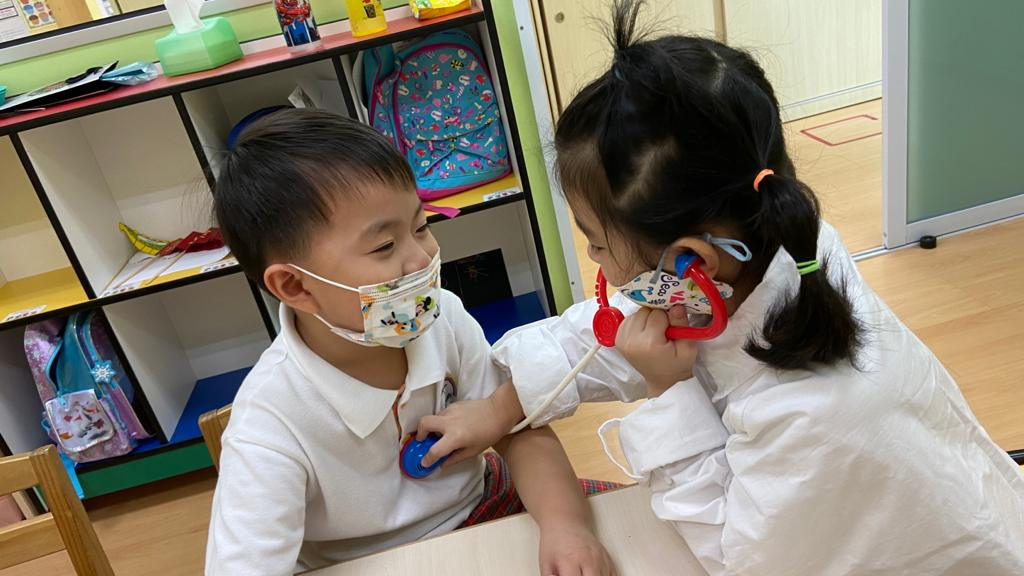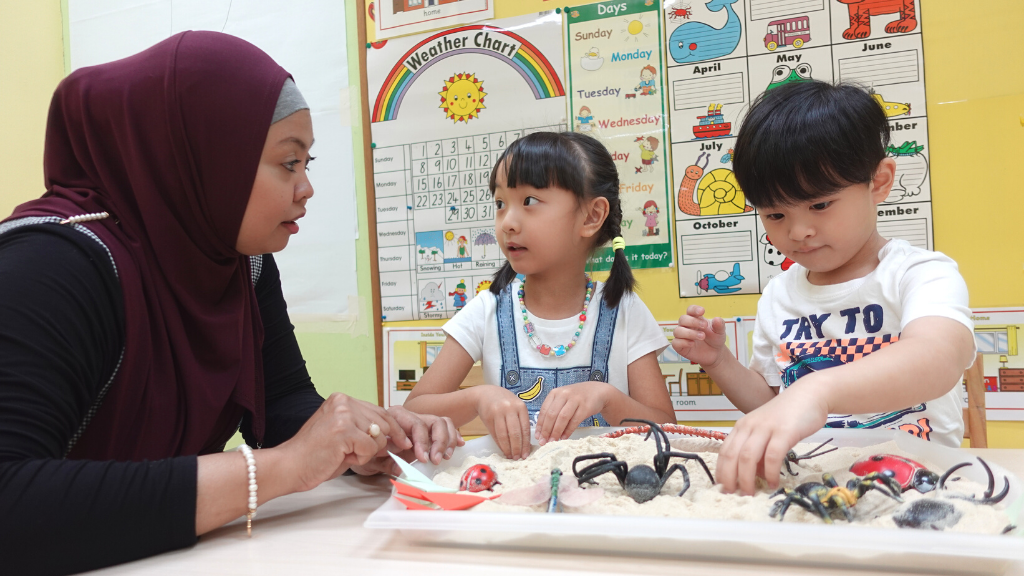Do you know just how important early brain development is? Let us paint you a picture.
A baby is born with all the neurons that they will ever have. Regardless of how small their brain is, they are born with 100 billion neurons—that’s twice as many neurons as adults! These neurons are necessary for their brain to develop and respond to their environment. A baby has a tremendous amount of learning to do in the first three months. And this is exactly why early childhood experiences are crucial.
Early childhood experiences and brain development
Just like yours and ours, a child’s brain is built over time. Starting from as early as during pregnancy, their brain will continue to develop and grow until they reach adulthood. The brain is made up of several different parts, and each part is designed to control everything that they do—from hearing, talking, walking, and even feeling. At birth, a baby’s brain wiring is not fully connected, but it is very active and responsive to everything that is happening around it. And during this time, their learning capability happens at a very fast pace.
Although the brain will continue to develop even after reaching adulthood, the first eight years of a person’s life is the optimal time to build a foundation for future learning, health, and success. But how well a brain develops may also depend on a few factors such as:
- Genes
- Proper nutrition during pregnancy
- Exposure to toxins or infections
- The child’s experiences with other people and the world
A child is born ready to learn. And the best way to nurture a child’s brain development is to provide them with responsive care. They learn from observing their parents, family members, teachers, caregivers, friends, and even strangers. Therefore, children grow and learn better in a safe environment—a place that is full of opportunities and free of neglect and stress. When parents and caregivers play with them and show them care, they encourage healthy brain growth. But if a child is exposed to stress and trauma, that can pose a long-term negative impact on the child’s brain.
Here are simple ways to nurture your child’s brain development
1) Play with them
Play is one of the most effective ways to nurture your child’s brain development. With play, a child can complete tasks, build relationships, and learn new skills. As your child’s first playmate, you will help to expose them to the world around them. And the play doesn’t have to be complicated! Just play simple games such as sorting blocks according to shapes and colours or playing peek-a-boo. But remember to talk to your child throughout the game—tell them what is going on, explain the game, and point out interesting things.
2) Respond to them
Whenever your child is feeling upset or hungry, they will find ways to let you know. This could be in the form of babbling, smiling, or even by making random sounds. When this happens, respond lovingly and consistently because everyday experiences are what help to shape their brain. And when you respond to them warmly and predictably, you help make them feel safe. You are also encouraged to talk and read to them because interacting with children can cultivate positive brain development.
3) Serve them good and nutritious meals
During the first six months, it’s best to breastfeed your child because breast milk provides them with the nutrients to grow and fight infections during infancy. But whether or not you breastfeed or use formula, make eye contact, smile, and have skin contact with your child during feeding time because it is also a brain-building time for them. As they grow older, feed them nutritious and iron-rich foods like fruits and vegetables.
4) Ignite their senses
You can expose your child to music, have them hold clothes of different materials and describe the textures to them or decorate their room in bright colours and patterns to ignite their five senses (touch, sight, hearing, smell and taste). An expert also recommends sticking out your tongue as you change their diapers and wait for them to do it back to you. This gesture will encourage them to practice tongue control and help with their eating and speech development.
At a young age, your child’s brain is actively absorbing information like sponges. And there is no better time for you to nurture their brain development than now! Here at Young Engineers Singapore, we encourage learning through play. And there are plenty of fun programmes and activities for your child to explore their creativity, passion, and talent. For more information about our enrichment programmes, get in touch with us now!


